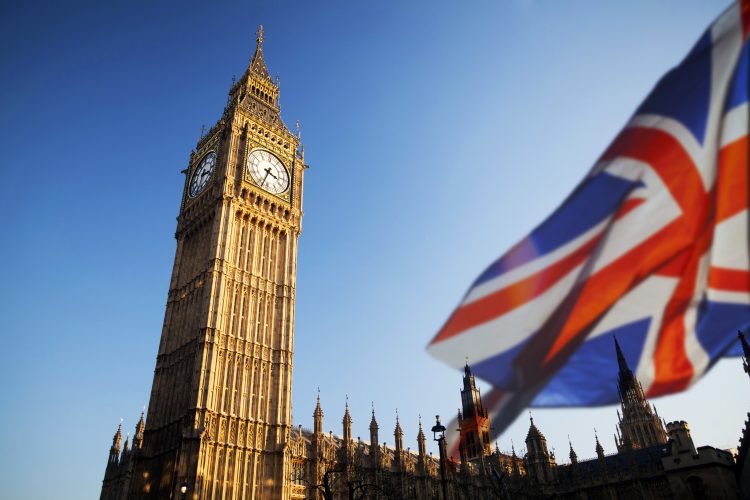Labour’s six food pledges: From trade to junk food ads
- Like
- Digg
- Del
- Tumblr
- VKontakte
- Buffer
- Love This
- Odnoklassniki
- Meneame
- Blogger
- Amazon
- Yahoo Mail
- Gmail
- AOL
- Newsvine
- HackerNews
- Evernote
- MySpace
- Mail.ru
- Viadeo
- Line
- Comments
- Yummly
- SMS
- Viber
- Telegram
- Subscribe
- Skype
- Facebook Messenger
- Kakao
- LiveJournal
- Yammer
- Edgar
- Fintel
- Mix
- Instapaper
- Copy Link
Posted: 12 July 2024 | Tony Goodger | No comments yet
Here, AIMS’ Tony Goodger outlines Labour’s economic growth and food security pledges from Prime Minister Keir Starmer’s first Cabinet meeting.


The Government's food strategy has been presented to the House of Commons
By Tony Goodger, Head of Marketing & Communications at AIMS
After chairing his first Cabinet Meeting, Prime Minister Keir Starmer spoke of the Labour Party’s number one mission as being their mandate for economic growth. He declared that his government has “started the work on driving growth” and how they would put into action the plans set out in their manifesto.
Of all of the parties that stood at the General Election Labour’s manifesto was the longest and yet had the shortest title, “Change”.
Reading their manifesto it’s possible to identify six food pledges:
- We will publish a trade strategy and use every lever available to get UK business the access it needs to international markets. This will promote the highest standards when it comes to food production.
- We will reduce food prices by removing barriers to businesses trading.
- Labour recognises that food security is national security.
- We will seek to negotiate a veterinary agreement to prevent unnecessary border checks and help tackle the cost of food.
- We will set a target for half of all food purchased across the public sector to be locally produced or certified to higher environmental standards.
- Labour is committed to banning advertising junk food to children.
The Association of Independent Meat Suppliers (AIMS) represents post-farm gate meat and poultry processors and, it is our view that, as an industry, we have for too long been led by just one Whitehall department, Defra, when, the reality is that our members are manufacturing businesses and therefore should principally sit under the Department for Business and Trade (DBT) with Defra in a supporting role.
Such a change would cost very little, but would enable the views and aspirations of our members to sit, not as they currently do, within the country’s primary industries but with the secondary ones. The businesses that are the drivers of domestic and overseas economic growth.
Looking at the six food pledges, and taking one to three into account first, there is just one input required for delivery, access to skilled labour.
There are workers across the globe who want to come to the UK and be part of this country’s growth, delivering both in terms of output and also in spend within the communities where they live. In my view this is a quick and easy change, again at low cost.
Labour’s proposed trade strategy includes the line “This will promote the highest standards when it comes to food production”.
I do hope that by this trade negotiators will move on from simply promoting the UK’s high standards of animal welfare, livestock husbandry, farmer pride and skill, but also, the high production standards within our meat and poultry processing industry.
Businesses that are audited by competent authorities on behalf of the Government and where safety, quality, and an ability to deliver across the globe in a timely manner is what UK food manufacturing does, as standard, every day.
AIMS’ work with the Food and Drink Export Council recently identified 128 current food and drink industry trade barriers or which around 30 were in the meat and poultry sector.
Almost all the “barriers to businesses trading” profitably require civil service attention and Government action. Many could be remedied quickly and thus open valuable markets such as for the UK’s high quality red meats, especially Welsh Lamb and Scotch Beef as well as pork and poultry.
An example of this is Indonesia, a market of 229 million Muslim consumers. Imposed in January 2019 and reviewed but not lifted, last in December 2020, the trade barrier is based on the UK being unclear about the Halal certification requirements in Indonesia. One for DBT officials to have a word in the ear of our trade attaché in Jakarta. Afterall, UK Halal certifiers, HCO are recognised by almost every Muslim consumer market in the world. Resolving this trade barrier should therefore be quick, simple and must be attended to without delay.
Labour have “inherited” the current National Risk Register (NRR)¹. A Cabinet Office assessment of the possible impact that around 150 critical incidents could have either on the whole country or parts of it.
Food Pledge three, “Labour recognises that food security is national security” and yet while the NRR contains the words “National Security” throughout, there is no mention of “Food Security”.
What is on the NRR, and which could impact Food Security is “The contamination of food products”; “The reasonable worst-case scenario is based on an incident involving a pathogen in the food chain resulting in illness, hospitalisation and possible fatalities in a moderate to large number of people”.
Also, on the NRR is Human, Animal and Plant Health. On the list of risks is Animal Disease, a major outbreak of, Foot and Mouth Disease (FMD), Highly Pathogenic Avian Influenza (HPAI) and African Swine Fever (ASF).
Whilst no Government can stop HPAI entering the country, they must take robust steps to ensure that neither FMD nor ASF do. It is essential that there are no personal imports of meat from drivers returning from the continent rather than the current 2kg personal consumption allowance.
An even more pressing factor is that they must stop the illegal imports of meat and poultry that we know are entering the UK an industrial scale by well organised criminal gangs.
Their actions threaten the country’s biosecurity, which, if compromised could cause untold hardship to the rural economy whilst also damaging the wider economy and in particular the tourist industry.
As a reminder, the 2001 Foot and Mouth Disease (FMD) outbreak cost the UK public sector £3 billion and the private sector a further £5 billion.
For Products of Animal Origin (POAO) we must have a veterinary agreement put in place quickly. This would speed up the movement of goods, reduce administrative costs and deliver an immediate “win” for both the UK and the EU as well as helping to ease the current shortage of vets.
Do this and they’ll deliver Food Pledge four.
Naturally we support Food Pledge five, “We will set a target for half of all food purchased across the public sector to be locally produced or certified to higher environmental standards” though, no doubt, the levy boards on our behalf, will need to keep reminding the sometimes ideologically driven public sector caterers that meat must be on the menu.
And point six?
If the new Government choses to make a ‘Change’ through the “banning advertising of ‘junk’² food to children”, there is very little that we as the food industry can do about it other than agree that if this measure reduces childhood obesity and its associated cost to the taxpayer, then we must accept that this is a country before party issue rather than any sort of forced change.
AIMS wishes the Labour Government every success, we, along with our members are here to work with you to help grow the economy and prosperity.
References
¹2023_NATIONAL_RISK_REGISTER_NRR.pdf (publishing.service.gov.uk)
² Personal view: In a country where we have food handouts and in a world of millions of starving people, there is no such thing as ‘Junk’ when it comes to food.
About the author
Tony began working with AIMS in late 2019 as marketing and communications advisor.
He has worked in the food industry throughout his career firstly with United Biscuits PLC and then with the Meat and Livestock Commission / Agriculture and Horticulture Development Board.
His main interests are in public procurement of British meat, social media marketing, reducing the impact of the meat industry on the environment and business sales and marketing improvement both in the UK and overseas markets.
Related topics
Food Safety, Regulation & Legislation, Supply chain, Trade & Economy









